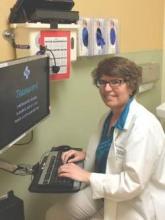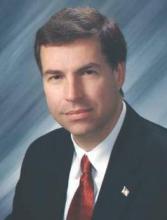For Dr. Carla L. Kakutani, it has become increasingly challenging to obtain durable medical equipment (DME) for her Medicare patients.
In addition to proving equipment is medically necessary, a 2013 rule requires clinicians to document that a face-to-face encounter occurred between a patient and doctor or other health provider within 6 months of the DME order. (Enforcement of the rule has been delayed, but many providers are currently complying with this policy.) Dr. Kakutani understands the added regulations are meant to prevent fraudulent billings, she said, but the heavy paperwork and additional red tape are burdensome.
“The problem is, [the process] turns into this back and forth between you, the equipment company, and Medicare,” said Dr. Kakutani, a family physician in Winters, Calif. “Meanwhile, the patient is waiting, and you’re being distracted from other things. The bad apples are making life rough for the rest of us.”
As Medicare turns 50 this year, Dr. Kakutani is not alone in her frustrations. In recent years, the U.S. Department of Health & Human Services has greatly expanded its efforts to combat Medicare fraud, and physicians across the country are feeling the effects.
The government’s primary antifraud tool is the Health Care Fraud Prevention and Enforcement Action Team (HEAT), created in 2009 to identify and investigate health fraud and abuse. CMS also works with an array of contractors to detect Medicare fraud, including comprehensive error rate testing (CERT) contractors, Medicare administrative contractors (MACs), Medicare drug integrity contractors (MEDICs), recovery audit program auditors (RACs), and zone program integrity contractors (ZPICs). In 2010, CMS launched the Fraud Prevention System (FPS), a predictive analytics technology that runs algorithms on all Medicare claims prior to payment. And in 2012, CMS created the Program Integrity Command Center that brings together investigators from Medicare, Medicaid, and the law enforcement community to develop predictive analytics that identify fraud and mobilize a rapid response.
Just how much Medicare fraud is happening at any given time is difficult to measure. In 2014, the federal government recouped $3 billion in Medicare- and Medicaid-related fraud settlements and judgments, according to an HHS analysis. In 2013 and 2012, the government recovered about $4 billion each year. And it’s nearly impossible to determine the volume of Medicare fraud committed by doctors, said Dr. Julie Taitsman, chief medical officer for the HHS Office of Inspector General.
“Getting at the actual amount of Medicare fraud in general, or Medicare fraud by physicians, is incredibly difficult,” Dr. Taitsman said in an interview. “We can tell you about the fraud we’ve identified, but we don’t know the total body of fraud.”
Dr. Taitsman stressed that all providers play a major role in preventing health fraud and improving the quality of the Medicare system.
“Why it’s so important for physicians to practice with integrity – and we do believe that the vast majority of physicians practice with integrity – is because physicians control the bulk of care and services that [Medicare] patients receive,” Dr. Taitsman said. “That’s why it’s so important for physicians to be our partners in promoting high-quality care, promoting efficiency and compliance with the rules.”
But continually changing rules and guidelines make it difficult for many doctors to do just that, said Dr. James Szalados, an anesthesiologist and critical care physician based in Rochester, N.Y. Updates to payment rules, new OIG work plan targets, and growing documentation requirements can be overwhelming for practices.
“It’s not just the number of regulations, but it’s also the rate of change,” said Dr. Szalados, who is also an attorney. “For most doctors, it’s terrifying. They can’t keep up.”
Adhering to the latest regulations generally means hiring outside attorneys, consultants, and financial auditors who can help doctors self-police their practices, Dr. Szalados said.
Physicians also face Medicare fraud accusations from more directions than in the past, said Michael E. Clark, a Houston-based health law attorney and chair of the American Bar Association health law section. In addition to government claims, whistle-blower provisions under the False Claims Act allow individuals to file lawsuits alleging fraud and abuse on behalf of the government. If the government intervenes and the suit is successful, a whistle-blower can take home 15%-25% of money recovered. In 2014, the number of whistle-blower suits exceeded 700 for the second year in a row, according to the Department of Justice.
“A lot of people bringing these false claims actions are former or disgruntled employees or other doctors,” Mr. Clark said. “You might have a technical, regulatory type of theory, and yet it can be quickly changed into a fraud and abuse case.”


